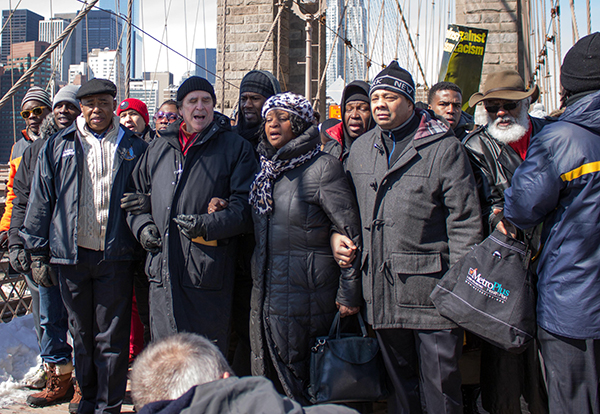Hundreds march over Brooklyn Bridge to remember Selma’s Bloody Sunday
BP Adams: 'We’re fighting now for not just civil rights but human rights'

Brooklyn Borough President Eric Adams, left, linked arms with civil rights attorney Norman Siegel; Dr. Karen Daughtry, Pastor of House of the Lord Church; and state Sen. Jesse Hamilton. Eagle photo by Francesca Norsen Tate
Carrying signs saying “Black lives matter!” and “We march with Selma,” more than 500 marchers crossed over the Brooklyn Bridge on Saturday to commemorate the 50th anniversary of Bloody Sunday in Selma, Alabama.
During the 1965 voting rights march, police violence against peaceful participants shocked the nation. The Selma march was led by the Rev. Martin Luther King Jr. and other civil rights luminaries.
On Saturday, Borough President Eric Adams linked arms with religious leaders and led the way from lower Manhattan to Brooklyn Borough Hall, where participants watched President Barack Obama’s address to the nation from Selma.
